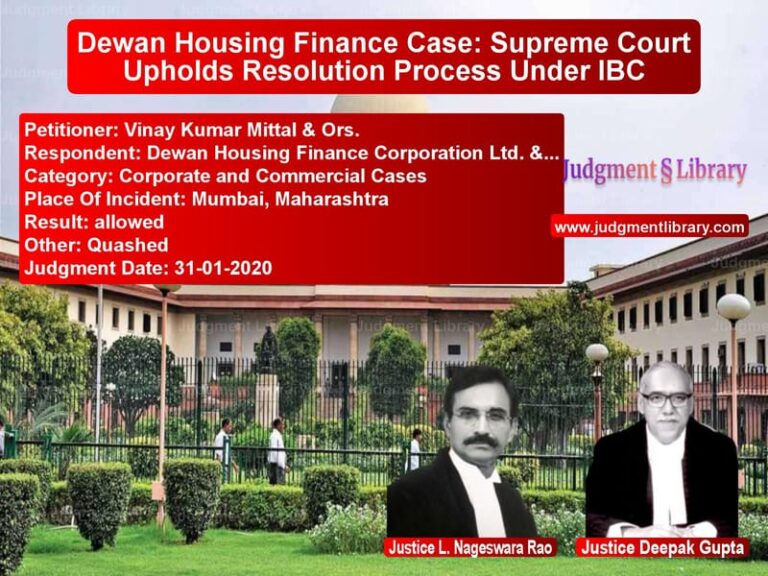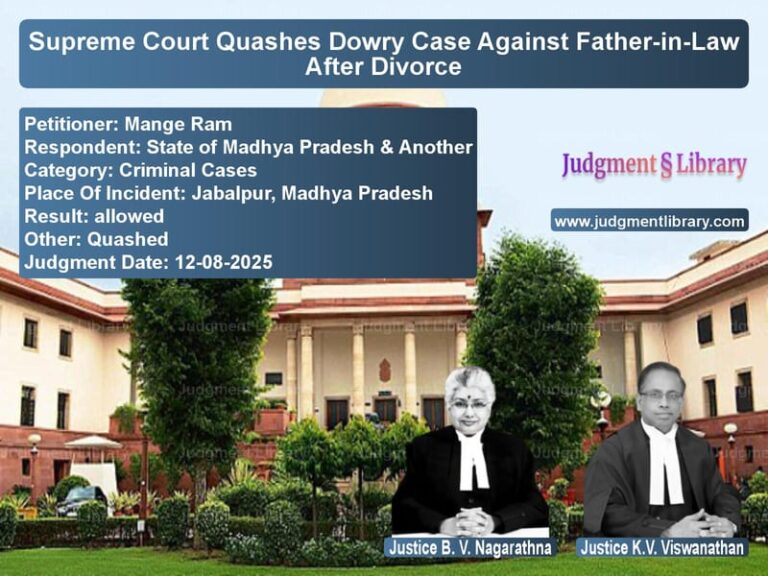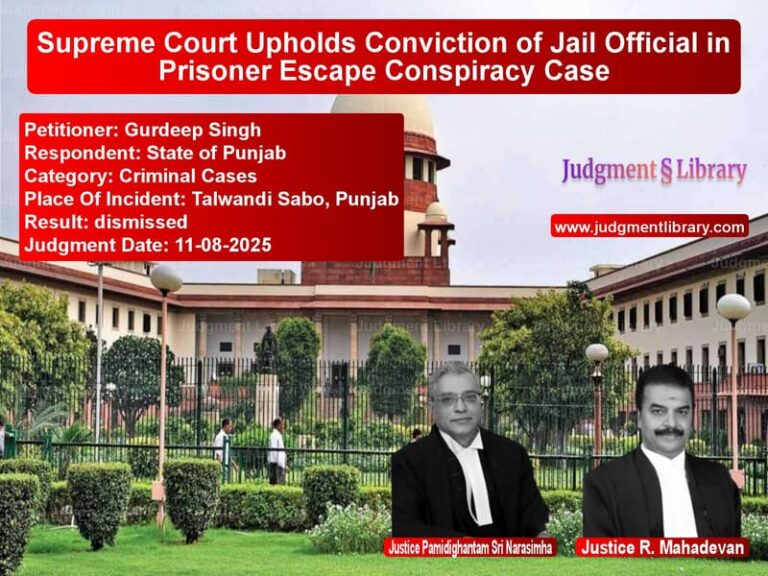Reservation in Promotions: Supreme Court Rules Against Quotas for SC/ST in Bank Officer Cadres
The case of Chairman & Managing Director, Central Bank of India v. Central Bank of India SC/ST Employees Welfare Association is a landmark ruling addressing the issue of reservations in promotions for Scheduled Caste (SC) and Scheduled Tribe (ST) employees in public sector banks. The Supreme Court ruled that the existing Office Memorandum (OM) dated August 13, 1997, does not provide for reservation in promotions for SC/ST employees in officer grades within banks, reversing the decision of the Madras High Court.
Background of the Case
The case originated when the SC/ST Employees Welfare Association of various banks filed petitions before the Madras High Court, claiming that the banks had wrongfully denied them reservations in promotions to higher officer grades. They argued that the Office Memorandum (OM) dated August 13, 1997, issued by the Central Government, provided for reservations in promotions to SC/ST employees within the officer cadre.
The High Court ruled in favor of the SC/ST employees, holding that promotions in officer grades must include reservations for these categories. The banks challenged this decision before the Supreme Court, contending that the OM did not provide for such reservations.
Issues Before the Supreme Court
The Supreme Court had to determine:
- Whether the OM dated August 13, 1997, provided for reservation in promotions for SC/ST employees in officer cadres within banks.
- Whether banks were legally obligated to provide reservations in promotions for SC/ST employees in officer ranks.
- Whether the High Court was correct in directing banks to provide reservations in promotions.
Arguments of the Petitioners (Banks)
The banks, represented by their legal counsel, argued:
- The OM dated August 13, 1997, did not mandate reservations in promotions to higher officer grades.
- There was no statutory or constitutional obligation to provide reservations in promotions within Group A (officer) posts.
- The Indra Sawhney judgment (1992) of the Supreme Court had already ruled that reservations in promotions were unconstitutional unless specifically provided by law.
- Reservations for SC/ST employees were applicable only up to a certain level and not in higher officer ranks.
Arguments of the Respondents (SC/ST Employees Welfare Association)
The SC/ST Employees Welfare Association countered:
- The OM clearly mentioned that reservations in promotions should continue until adequate representation of SC/ST employees was achieved.
- The banks, being public sector entities, were required to implement government policies on reservations.
- Without reservations in promotions, SC/ST employees would face systematic discrimination, preventing them from reaching higher positions.
Supreme Court’s Analysis and Judgment
1. No Explicit Reservation in the OM
The Court examined the OM dated August 13, 1997, and found:
“There is no provision in the OM that explicitly provides for reservations in promotions to higher officer grades within banks. The OM merely states that concessions are available to SC/ST employees but does not mandate reservations.”
2. Indra Sawhney Judgment and Article 16(4A)
The Court referred to the Indra Sawhney judgment (1992), which had ruled that reservations in promotions were unconstitutional unless specifically provided by law. The Court noted:
“The Constitution (Seventy-Seventh Amendment) Act, 1995, inserted Article 16(4A), allowing reservations in promotions for SC/ST employees, but it is an enabling provision. The State is not automatically required to provide such reservations unless it deems necessary.”
3. High Court’s Overreach
The Supreme Court criticized the Madras High Court for overstepping its jurisdiction by interpreting the OM as mandating reservations. The judgment stated:
“The High Court erred in assuming that the OM itself provided for reservations. It is the prerogative of the government or legislature to enact laws providing for such reservations, not the judiciary.”
4. Need for Government Action
While ruling against reservations in promotions, the Court acknowledged the low representation of SC/ST employees in senior positions within banks. The judgment stated:
“It is open to the Government to examine whether reservations in promotions should be introduced for SC/ST employees in banks. However, unless a clear policy decision is taken, courts cannot impose such reservations.”
Final Judgment
The Supreme Court ruled:
- The High Court’s order directing banks to provide reservations in promotions was set aside.
- The OM dated August 13, 1997, does not provide for mandatory reservations in promotions.
- It is up to the Government to decide whether reservations in promotions should be introduced in banks.
Key Takeaways
- There is no automatic reservation in promotions unless explicitly provided by law.
- The judiciary cannot create or impose reservations where none exist.
- The Government has the power to introduce reservations in promotions if it deems necessary.
- SC/ST employees can seek policy changes but cannot demand reservations unless legally mandated.
Conclusion
The judgment in Chairman & Managing Director, Central Bank of India v. Central Bank of India SC/ST Employees Welfare Association clarifies the legal position on reservations in promotions within public sector banks. The ruling underscores that reservations must be explicitly provided for by the Government and cannot be assumed based on policy interpretations.
Don’t miss out on the full details! Download the complete judgment in PDF format below and gain valuable insights instantly!
Download Judgment: Chairman & Managing vs Central Bank of Indi Supreme Court of India Judgment Dated 08-01-2016.pdf
Direct Downlaod Judgment: Direct downlaod this Judgment
See all petitions in Promotion Cases
See all petitions in Public Sector Employees
See all petitions in Recruitment Policies
See all petitions in Judgment by A.K. Sikri
See all petitions in Judgment by J. Chelameswar
See all petitions in allowed
See all petitions in Quashed
See all petitions in supreme court of India judgments January 2016
See all petitions in 2016 judgments
See all posts in Service Matters Category
See all allowed petitions in Service Matters Category
See all Dismissed petitions in Service Matters Category
See all partially allowed petitions in Service Matters Category







